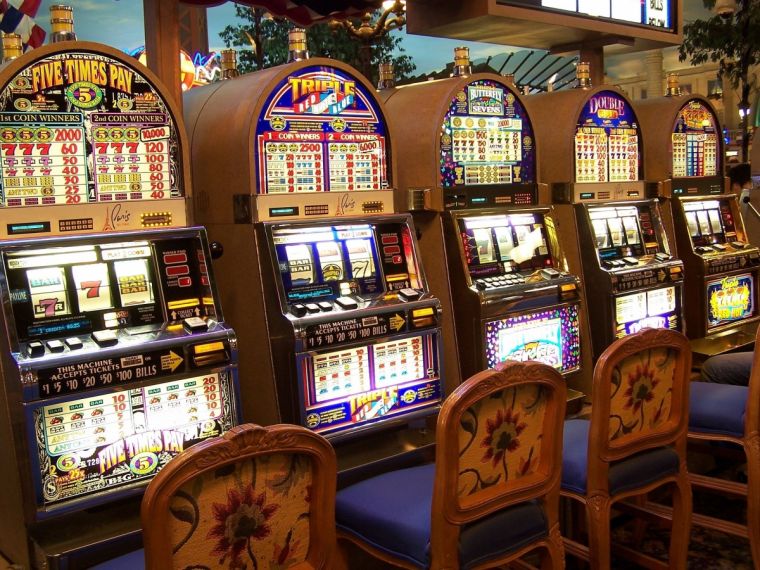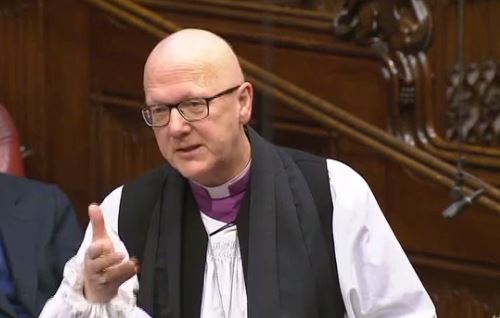Crackdown on fixed-odd betting terminals revealed amid warnings of a 'fudge'
The maximum stake at fixed-odd betting terminals will be cut, and could be lowered to as little as £2, after government ministers admitted the current status quo was 'inappropriate'.
The highly addictive machines dubbed the 'crack cocaine' of gambling currently allows punters to bet £100 every 20 seconds meaning £18,000 could be lost every hour.

In a long-awaited and long-overdue review, the Department of Culture, Media and Sport proposes to limit the maximum stake to between £2 and £50. A 12-week consultation will follow after which ministers will make a decision.
The Church of England is among dozens of Christians bodies to have campaigned for a £2 maximum stake on fixed-odd betting terminals (FOBTs) and, if the proposals goes ahead, it could be a major victory for them.
But the Bishop of St Albans, Dr Alan Smith, warned ministers against opting for anything other than the £2 stake, saying the £100 had been a 'disastrous anomaly' in gambling regulation
'While a reduction in stakes is welcome, any stake higher than £2 does not go far enough to address the harm these machines cause to families and communities around the UK,' he said, adding a £2 stake 'will bring order to the regulatory scheme and improve our high streets. At present, FOBTs are the only betting machines on the high street which take a stake of more than £2. The £100 stake has been a disastrous anomaly.
'I urge the Government not to replace one harmful anomaly with another at the expense of the poorest and most vulnerable.'

The review criticises bookmakers who cluster FOBTs in areas with 'greater levels of income deprivation and more economically inactive residents'. The review also address online gaming, gambling advertising and sports minister Tracey Crouch said the aim was to 'reduce the potential for large session losses and therefore to the potentially harmful impact on the player and their wider communities'.
She said: 'It is vital that we strike the right balance between socially responsible growth and protecting the most vulnerable, including children, from gambling-related harm.'
But Labour's deputy leader Tom Watson said he was 'disappointed' the government had merely launched a review when it should be taking action.
'These fixed-odds betting terminals are destroying the lives of people who can't afford to gamble,' he told BBC's Today programme.
'People who are problem gamblers seem to be drawn to these machines. They're on they're doorstep. They're on every estate in Britain. That's why they're so dangerous.'
He added: 'Ministers have squandered a real opportunity to curb highly addictive FOBTs, which can cause real harm to individuals, their families and local communities.
'After months of delays they've simply decided to have another consultation.'
A coalition of Christian lobby groups and churches who have campaigned to lower the maximum stake warned against a 'fudge' and said 'anything approaching an upper limit of £50 would not go far enough to reduce the negative impact these machines can have on individuals, families and the wider society'.
In a joint statement, The Church of Scotland, Salvation Army, The Church of England, The Methodist Church, the United Reformed Church, The Baptist Union of Great Britain, CARE, The Evangelical Alliance and Quaker Action on Alcohol and Drugs said: 'Not only is there a major challenge presented by FOBTs, there are also wider issues associated with gambling that require serious political commitment to address.
'We stand by the belief that the maximum stake on fixed odds betting terminals must be radically reduced from the current maximum stake of £100.
'We believe that this will help to reduce the potentially enormous financial loss that some people experience, and therefore the consequences including debt, depression and crime.'
Bookmakers' income from the machines amounted to £1.8billion last year alone, which is more than half their total revenue. The Association of British Bookmakers warned curbing the maximum stake would cost 20,000 jobs but the industry is thought to accept the days of £100 maximum stakes are over so will lobby for a top bet of £50.
A reduction to £2 would see the Treasury lose £1billion in taxes by 2020 but Theresa May is understood personally to oppose the current regulation.
The Campaign for Fairer Gambling, which has led the campaign for a £2 maximum stake, said: 'We are confident that, when all the evidence has been considered, £2 will be judged to be the most appropriate level.'











